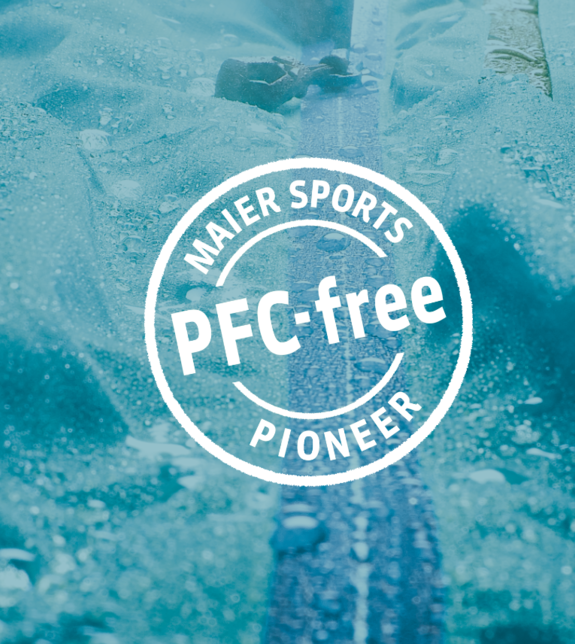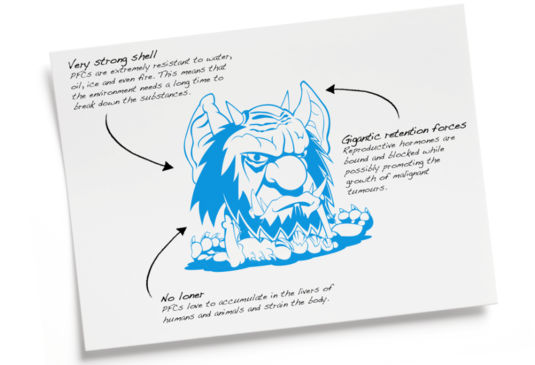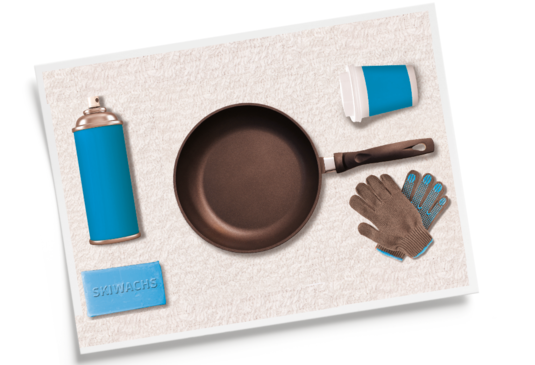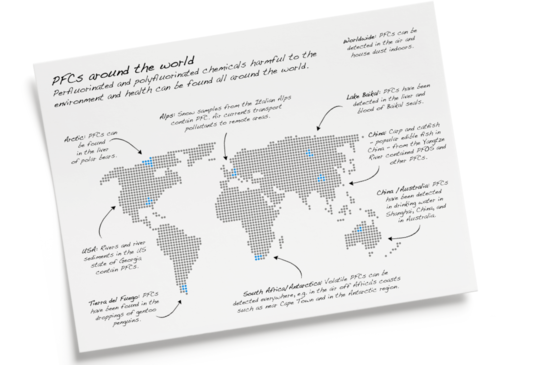BETTER FOR PEOPLE AND NATURE
Maier Sports - the PFC-free pioneer
Environmentally friendly and sustainable. This is the demand we make on our products at Maier Sports.
Therefore, all our jackets and pants are impregnated environmentally friendly PFC-free.
Greenpeace appealed to outdoor companies with its "detox campaign" in 2013 to ban finishes with perfluorinated and polyfluorinatred chemicals (PFCs) from hiking and mountaineering clothing. That was reason enough for Maier Sports to take on this task.
We unveiled the first PFC-free outdoor jacket in the same year. A pioneering feat.
We then continued with our goal of achieving a PFC-free finish step by step. Always in the forefront of technological developments. The aim was to change the entire collection over to a high-performance PFC-free finish by 2020. However Maier Sports has already exceeded its own target as all newly manufactured jackets and pants in the entire Maier Sports collection have had an environmentally friendly PFC-free finish since 2018.
Advantages of alternatives to PFC
Maier Sports always uses membranes that are based on polyester (PES) or polyurethane (PU), are harmless from an environmental and health point of view and are PFC-free. As part of our Mission Clean Function, we as one of the pioneers have created a high-performance PFC-free finish.
PFC finishes are still quite widespread because one of their excellent qualities includes repelling water, fats, oils or other dirt. We worked with partners in the chemical textile industry and found a solution, which lets water drip off textiles really well, similar to PFC finishes. We haven't been quite as successful with fats, oils and dirt yet.
FAQs on proper disposal of items containing PFCs
Such products should not be disposed of in household waste bins, as they contain PFCs (perfluorocarbons). To dispose of these items responsibly, you should take them to hazardous waste collection sites which know how to handle PFCs.
PFCs are chemicals which are both long- living and toxic, making them very problematic for the environment. When items containing PFCs end up in household waste bins, the PFC may be released into the environment during the standard waste disposal process. As PFCs can spread through the soil, the water, and the air, they are not only dangerous to the environment, but also to humans and animals that come into contact with or unknowingly ingest these chemicals.
Prepare your PFC items for the drop-off by putting them into a sealable container or a separate waste bag. This prevents them from contaminating other waste items. You can use a rubbish bag with a drawstring or special chemical or hazardous waste disposal bags with seals. If neither is available, an ordinary plastic bag can also be used, though you should make sure to seal it adequately.
Different hazardous waste collection sites recycle items containing PFC in different ways, though the process is always demanding. Ways to handle PFC items include incineration, recycling, or disposal in specially sealed landfill areas. If you wish to know more about how a hazardous waste collection site will dispose of your PFC items, please contact your local environmental authority or your local hazardous waste collection site directly. Dropping your PFC items off at a special hazardous waste disposal site in the way described here always ensures that these items are disposed of properly, however.






